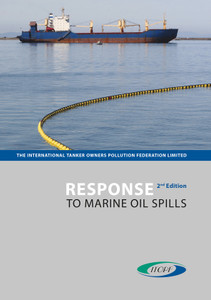
This publication sets out US State Oil Pollution Laws, focusing on the parties responsible, the range of claims and the potential financial liability. The publication is useful for any tanker owner trading to US ports.
INTERTANKO published its first review of US State Oil Pollution Laws in 1993 in response to the US Oil Pollution Act 1990 (OPA 90). This book was published following the Deepwater Horizon spill and focuses particularly on the rights to limit ship liability. It has been expertly compiled by Professor Martin Davies, Director of Tulane Maritime Law Center.
The federal U.S. Oil Pollution Act 1990 (OPA 90) specifically provides that states are not precluded from imposing additional liability with respect to pollution by oil within their territory: 33 U.S.C. § 2718(a)(1)(A). Thirty of the 50 U.S. states have a coastline on an ocean or one of the Great Lakes. Of those thirty, all but six have some kind of legislation imposing liability for vessel sourced pollution. The tables in this report describe the legal position in relation to civil liability for oil pollution in each of the thirty states.
In many instances, the state statutes do not provide complete coverage of all kinds of liability. Where there is no relevant statutory provision, the tables in this report state that liability can therefore be ‘common law only’. It should be noted, however, that it is arguable that state common law cannot apply to ship sourced oil pollution having an impact on land. The Admiralty Extension Act (46 U.S.C. § 30101) provides that cases of damage to person or property on land caused by a vessel on navigable waters of the United States fall within the admiralty and maritime jurisdiction. The general rule is that cases in the admiralty and maritime jurisdiction are governed by federal maritime law, not state common law, save for a few narrowly confined exceptions. As a result, it is arguable that where there is no state legislation, OPA 90 provides the only available remedy. However, claimants are entitled to bring admiralty claims in state court. It is very possible that state court judges would find a way to apply the common law of their states to provide a remedy, notwithstanding the Admiralty Extension Act.
The law is stated as of 18 November 2010.
Alabama
Alaska
California
Connecticut
Delaware
Florida
Georgia
Hawaii
Illinois
Indiana
Louisiana
Maine
Maryland
Massachusetts
Michigan
Minnesota
Mississippi
New Hampshire
New Jersey
New York
North Carolina
Ohio
Oregon
Pennsylvania
Rhode Island
South Carolina
Texas
Virginia
Washington
Wisconsin
INTERTANKO
INTERTANKO
(the
International
Association
of
Independent
Tanker
Owners)
is
a
trade
association
that
has
served
as
the
voice
for
independent
tanker
owners
since
1970,
representing
the
interests
of
its
Members
at
national,
regional
and
international
levels.
The organisation champions an industry dedicated to support global energy networks by delivering safe, efficient and environmentally sound transport services.
INTERTANKO actively works on a wide range of operational, technical, legal and commercial issues affecting tanker owners and operators around the world. It draws on regular and direct contact with its Members and other industry stakeholders to develop and disseminate information and best practice, essential to the tanker industry.
- Number of Pages:
- 44
- Published Date:
- July 2013
- Binding Format:
- Paperback
- Book Height:
- 300 mm
- Book Width:
- 210 mm
- Weight:
- 0.4 kg
- Preview:
- Yes
- Author:
- INTERTANKO



